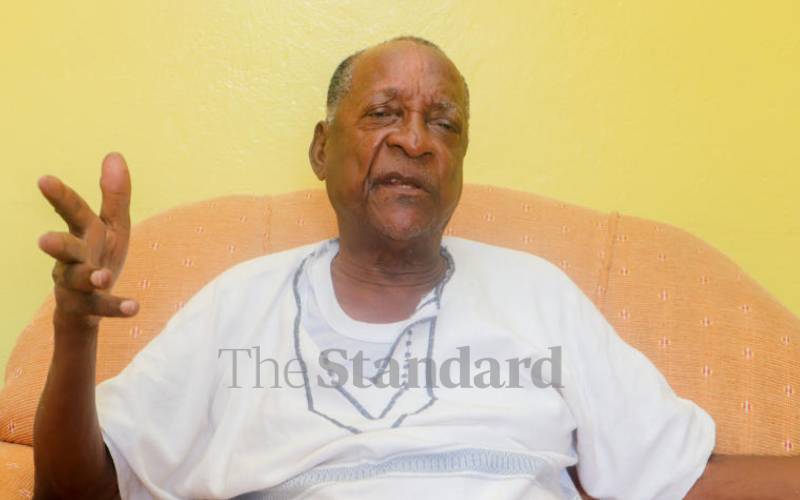×
The Standard e-Paper
Kenya’s Boldest Voice

Bango music singer Mzee Ngala, 86, at his home in Frere Town, Mombasa County. [Robert Menza, Standard]
Coast Bango music maestro Mzee Joseph Ngala Katana is a paradox of life. Although he admits to having reaped big from his sixty-year music career, he still maintains an austere life. He lives in an old Swahili house built in the 1960s at Frere Town in Mombasa.